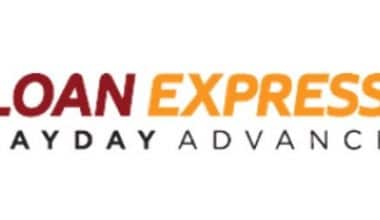Are you prepared to move from renting an apartment or a house to buying one? How can you know if you’ll get a mortgage before applying? Most buyers use mortgages to pay for their homes, but there are different requirements for different types of mortgage loans. In this post, you will learn about the qualifications for mortgage loans for a broker.
Qualifications For Mortgage
A mortgage is a special type of loan that people use to buy a house. Credit unions, online lenders, and national banks offer mortgages. Let’s start with lenders’ main criteria for mortgage approval. Mortgage approval depends on income, debt, credit, assets, and property type.
Are your finances not in the best shape? There are ways to improve your home loan application and increase your chances of acceptance.
Improve Credit
Home loans are heavily influenced by credit scores. Fix your credit to qualify for more loans and reduce interest rates. Three simple steps to enhance credit are below.
- Always pay on time.
- Use credit wisely.
- Reduce debt.
DTI Ratio
The debt-to-income ratio shows how much a person pays in debt each month. Divide your monthly debts by your monthly gross income. The DTI determines if a borrower can handle a mortgage on top of their debts. Mortgage lender DTI requirements differ. A DTI of 36% is considered manageable, but a greater DTI can qualify for a mortgage.
Employment and Income
Homebuyers must have consistent work and enough money to finance the mortgage. Mortgage lenders set income requirements. Lenders prefer two years of solid work. If reliable, this could be full-time, part-time, seasonal, or contract work. Document each income source.
The Amount of the Down Payment
Buyers pay a downpayment of a home’s price. Because certain mortgage loans require a lesser downpayment, homebuyers often think they need a 20% downpayment to qualify. However, traditional loans require a 5% downpayment.
Qualifications For Mortgage Loans
Mortgage lenders will consider many different pieces of information when you apply for a loan. Your credit, income, and assets determine everything. For the qualifications of mortgage loans, below are the items it will cover:
#1. Income
Income matters in the qualifications of mortgage loans. DTI ratios are considered by lenders. Your DTI covers your new mortgage and other monthly fixed expenses. These expenses are taken from your gross monthly revenue (before any taxes are deducted). This will help your lender evaluate if you’re spending less than the recommended 50% of your gross monthly income on fixed expenses.
#2. Credit
Lenders request your records from TransUnion, Experian, and Equifax. They can make the best mortgage qualifications for loans, and decisions using the information they gather. Your credit report includes a FICO score. 300–850 is your credit score. Lenders create their own credit requirements, although they usually look at your payback history, on-time payments, and loan repayment. Credit scores affect mortgage qualifications and interest rates on loans. Higher scores make mortgage qualification easier.
#3. Assets
The qualifications for mortgage loans also require assets. Assets are valuable possessions. Thus, assets include cash-accessible accounts. For the purposes of mortgage loans qualifications, you need to sell physical assets. Assets may include homes, automobiles, boats, RVs, jewels, and artwork.
Qualifications For Mortgage Underwriter
As a mortgage underwriter, you will make the choice of accepting or rejecting a borrower when they apply for a mortgage. To ascertain whether the borrower is eligible for a given mortgage program, you will assess the essential data. If you are searching for qualifications and want to work as a mortgage underwriter, you might want to perform the following:
#1. Acquire a Degree.
Acquiring a degree is one of the qualifications for being a mortgage underwriter. A bachelor’s degree will improve your employment prospects and pay possibilities even though it is not required to work as a mortgage underwriter. In these classes, you can learn about a variety of areas, including math, information systems, business, economics, accounting, and finance.
#2. Obtain Expertise
The majority of mortgage underwriters start out as loan officers or processors to get experience in their field. You might also submit an application to work as an assistant to a mortgage underwriter.
#3. Get the Right Mortgage Underwriter Education and certification.
Training and certification are the best ways to advance your career and get the qualifications for being a mortgage underwriter. The National Association of Mortgage Underwriters offers both the Certified Mortgage Underwriter certification and an underwriter boot camp (NAMU).
Qualifications For Mortgage Broker
Mortgage brokers help lenders and borrowers reach deals. Mortgage brokers, often known as “mortgage loan officers,” help homeowners find the best mortgage rate. They find the finest rates and terms for their clients. Mortgage brokers analyze interest rates and loan terms to get their clients the best prices. Brokers prioritize their clients’ interests even if they have a good relationship with a lending institution. Mortgage brokers understand financing rates, conditions, institutions, credit reporting, and eligibility. Steps to qualifications of becoming a mortgage broker:
#1. Complete High School and College.
Qualifications of being a mortgage broker require a high school diploma or GED. Most mortgage brokers don’t need a college degree, but they commonly get one in business administration, finance, or accounting. This can boost employment and earnings.
#2. Take Pre-Licensure Classes
A mortgage broker usually gets a license first, as qualifications are needed. Pre-licensure programs prepare for the exam. This 20-hour course covers federal and state mortgage legislation, broker ethics, and financial regulations. This course can help you study for the exam and retain crucial information for your future.
#3. Pass NMLS.
Pass the NMLS after the pre-licensure course. The SAFE Mortgage Loan Originator Test tests mortgage practices and state laws. At least 75% is needed to pass the state and federal exams. Passing background and credit checks lets you renew your license annually. Before renewing, check your state’s requirements.
#4. Open a Mortgage Brokerage.
Register your mortgage agency after passing the exam and completing the curriculum. State laws govern mortgage brokerage registration. Your state’s licensing office can register your business name and location.
Consider if you want a physical presence or an online brokerage when you register. Mortgage brokers must be located in some states. Consider the cost and accessibility of a physical site. Consider a distraction-free home office for your online business.
#5. Get a Mortgage Broker License and Bond.
Get your mortgage broker license after passing the exam and registering your business. NMLS criteria for your state. To receive a mortgage broker license, states usually need candidates to pass an exam, pay a fee, get a bond and apply.
#6. Stay Licensed.
Keep up with mortgage lending developments in your city and state because mortgage brokers must be licensed in most places. Annual continuing education classes might also maintain your license. You can show your continuing education when you renew your license each year. This maintains your license and provides clients with the latest loan information.
#7. Keep Training.
Continuous training and education can help with the qualifications for a mortgage broker. Take online or in-person classes to learn more about the industry and state and federal rules.
Qualifications For Mortgage Refinance
By being informed of the requirements for refinancing a mortgage, it may be able to save money up-front and, in certain cases, save the hassle of having to show your income or wait for a home appraisal. Homeowners may be able to lower their monthly payments, pay less interest, or decrease the length of their loan when searching for qualifications to refinance their mortgage. However, depending on your financial state and the purpose of the refinance, the terms might change.
There are crucial considerations to remember in qualifications to mortgage before completing refinance application for a piece of property.
#1. Recognize the Equity in Your House
The first piece of information you should consider when thinking on the qualifications to mortgage refinance, is how much equity you have in your home. If the value of your home has fallen since you first obtained your mortgage, refinancing is not a wise option (this is referred to as being in negative equity).
#2. Recognize Your Credit Score
Lenders have tightened the criteria for qualifying for loans in recent years. Even when they have excellent credit, some consumers might be surprised to hear that they aren’t always qualified for the lowest interest rates. Lenders normally want a credit score of at least 760 in order to qualify for the lowest mortgage interest rates. Lower-scoring borrowers might still be able to obtain a new loan, but they might be required to pay higher fees or interest rates.
#3. Become Familiar With the Debt-to-Income Ratio.
If you already have a mortgage loan, you might think it will be straightforward to apply for another one. However, in addition to raising the bar for credit scores, lenders have tightened their standards for debt-to-income (DTI) ratios. Although some factors, such as having a high income, a long and steady employment history, or a big savings account, may help you qualify for a loan, most lenders prefer that your housing costs not exceed 28% of your monthly gross income.
#4. Amounts Paid for Refinancing
There are several actions borrowers can take to reduce the refinancing fees, which normally run between 3% and 6% of the total loan amount. If you have enough equity, you can roll the fees into your new loan. Some lenders might provide a “no-cost” refinance, but in reality, this usually means that you would pay a little higher interest rate to cover the closing costs. Always remember to bargain and compare shop because the lender may reimburse or even waive refinancing expenses.
#5. Term versus Rates
Many borrowers focus on the interest rate when refinancing, but it’s important to determine your goals so that you can select the mortgage product that best meets your needs. If you want to reduce your monthly payments, choose a loan with the lowest interest rate and the longest term.
#6. Refinancing Points
When comparing various mortgage loan alternatives, be sure to consider interest rates and points. One popular way to reduce the interest rate is to pay points, which are equal to 1% of the total loan amount. Knowing how many points you will pay for each loan is crucial because they are either paid at the closing or added to the principle of your new loan.
#7. Know your Break-Even Point.
Before considering whether to refinance, figure out the breakeven point, or the point at which your monthly savings surpass the costs of doing so. After that, you own everything related to your monthly savings.
#8. Insurance for a Personal Loan
For homeowners who refinance with less than 20% equity in their property, private mortgage insurance is required (PMI). If you currently pay PMI for your current loan, this won’t have a substantial impact on you. However, because their properties have depreciated since they were purchased, some homeowners may discover that if they refinance their mortgage, they may be required to pay PMI for the first time.
#9. Find out About Taxes
Many consumers have relied on their mortgage interest deductions to reduce their federal income tax payments. If you refinance and start paying less interest, your tax deduction can be reduced.
Qualifications For Mortgage Forbearance
When facing financial difficulties and refinancing is not an option, mortgage forbearance enables you to postpone mortgage payments. If you are unable to make your full mortgage payment, mortgage forbearance may be helpful. It permits you to temporarily postpone payments or make smaller payments with the approval of your servicer. There’s a chance that you’ll be responsible for making up any missed payments and accruing interest.
Your mortgage servicer may grant you a forbearance if you let them know about your situation, preventing you from falling behind on your payments and racking up late fees. Forbearance in particular can aid in preventing foreclosure. Mortgage forbearance could lower your credit score since your mortgage servicer might notify the credit bureaus that your mortgage is in default and that you have signed up for a forbearance plan. It won’t damage your credit as badly as a foreclosure, though.
How Does Mortgage Forbearance Work?
Mortgage forbearance occurs when your loan servicer, who receives your mortgage payments, formally permits you to stop paying payments entirely or to make lower installments for a specified period of time, typically three to six months. You may sell your house if you are on forbearance. With the profits of the sale, your mortgage will also be paid off, along with any late penalties and accumulated interest. However, while you are in forbearance, you cannot refinance your mortgage.
How to Apply for Mortgage Forbearance
Relief from mortgage payments is not always an option. Contact your loan servicer right away to request a forbearance. Keep crucial information close at hand, like your account number. Don’t forget to request a formal copy of the agreement explaining the specific details.
Be prepared to inquire about the following:
- What other options do you have for patience?
- Are the late penalties waived?
- What choices do I have if I want to temporarily cease paying my mortgage or reduce the amount I pay?
- How will the credit reporting agencies be informed of this arrangement?
- What impact would that have on my credit score?
Remember that your loan’s owner and servicer might not always be the same company. Mortgage servicing rights are regularly sold by lenders to other businesses. To find out who is servicing your loan, check at your mortgage statement.
How to Qualify for Forbearance Under the Care Act
To be eligible for mortgage forbearance under the CARES Act, your loan must be backed by one of the following government agencies: Freddie Mac, Fannie Mae, VA, FHA, or USDA. The Urban Institute says that the government backs up two-thirds of mortgage debt.
What if you’ve already been late with a payment? Your request for understanding will be granted, regardless of how disobedient you have been. Until the account is brought back into good standing, you will be recorded as late if you enter forbearance after your loan is past due.
Remember that forgiveness and tolerance are not the same thing. The entire contract should be carefully read, and you should find out what actions will be taken against you if any payments are missed. During the forbearance period, the Federal Consumer Financial Protection Bureau says that no more fees, fines, or interest should be added. Even if you aren’t sure if a longer loan term or other changes won’t affect your interest rate, you should still ask about it.
Federally insured loans do not require prompt repayment of any missed mortgage payments once the forbearance period is over. These loans enable monthly payments or payments that are applied to the remaining balance of the mortgage loan. But proceed with caution, as not everyone will be suited for all possibilities. You must speak with your loan servicer to learn more about your alternatives.
How Much Income is Needed for a Mortgage?
In general, most would-be homeowners have enough money to finance a home whose mortgage is between two and two and a half times their yearly gross income.
How Easy is it to Qualify for a Mortgage?
Applicants with scores as low as 500 may be taken into consideration for an FHA loan. However, a credit score of 580 is required to be eligible for the 3.5% down payment benefit. A minimum score of 640 is often required for USDA loans and 580 to 620 for VA loans.
What Can You not Do to Qualify for a Mortgage?
Depending on credit or income, a loan application could be rejected for the following reasons:
- Inadequate credit history
- Too many missed credit payments.
- excessive debt to income (how much of your monthly income goes toward debt payments).
- Inadequate earnings.
- You requested a loan that you cannot afford to repay.
Why Would you Get Denied for a Mortgage Loan?
The most common reasons loans are denied include bad credit, a lack of income, or a high debt-to-income ratio.
How Much of My Salary Can I Borrow for a Mortgage?
You can typically afford a mortgage that is 2 to 2.5 times your gross income.
Can a Bank Refuse a Mortgage
Your application might have been rejected because the requested amount of credit cannot be repaid with your current salary.
Related Articles
- HOW TO REFINANCE STUDENT LOAN: Step-By-Step Guide
- FORBEARANCE VS DEFERMENT: What Is The Difference
- HOW MANY TIMES CAN YOU REFINANCE YOUR HOME: Updated
- Secondary Mortgage Market: Step By Step Guide On How It Works






